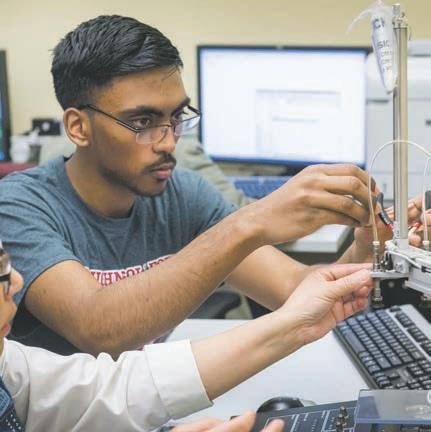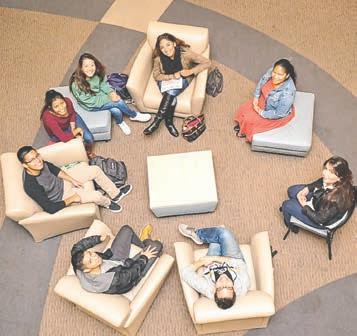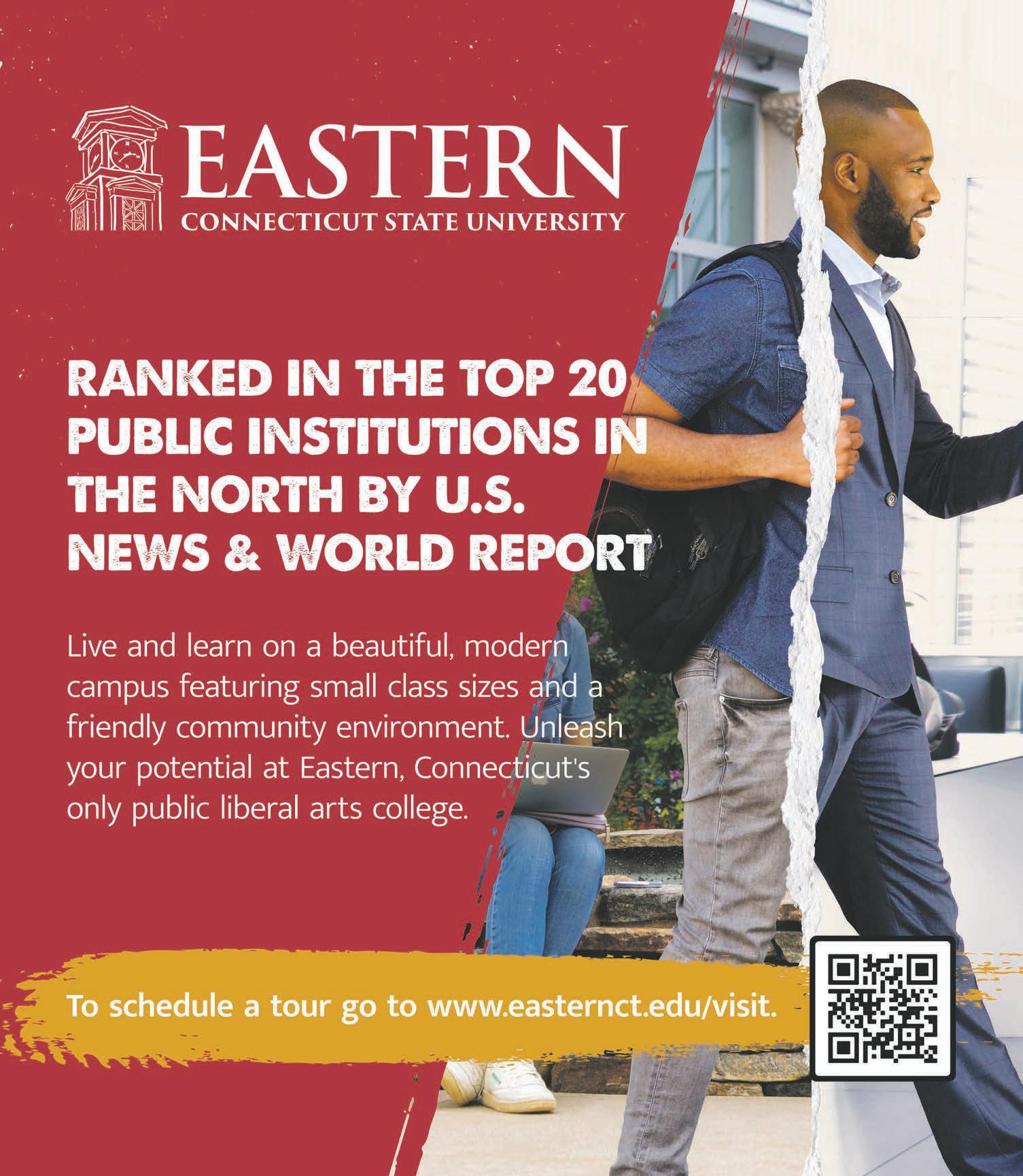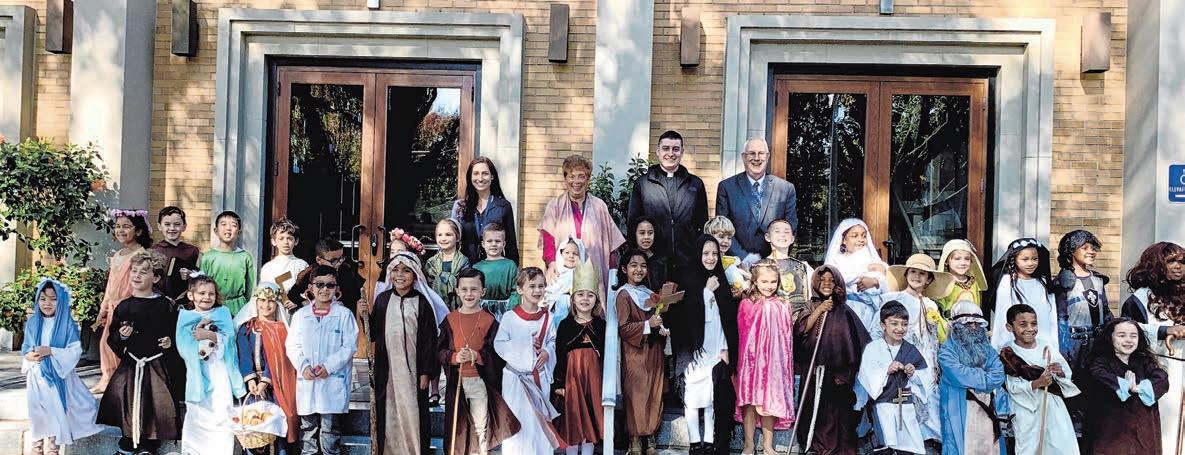




















































































Who is “the future you” going to be? We’ll help you find out. Our graduates leave with exciting, in-demand careers. We call it being futureproof. And we guarantee it.*

With degrees in computer, electrical, mechanical and mechatronic engineering and electronic and mechanical engineering technology, you can learn what it takes to design, program and build robots and drones, electrical systems in planes, trains and cars, navigation systems, generators and other power-producing equipment.







The career potential in the field of aviation management is limitless! Direct an airline’s customer experience or become an aviation safety inspector for the Federal Aviation Administration. Learn what it takes to run every aspect of an airport or airline—from marketing to production, safety, finance and more!

Soar into the future and learn how to become a pilot, air traffic controller, dispatcher or aviation maintenance technician—professions that will be in high demand for decades to come. Our state-of-the-art flight simulator complex, air traffic control and aviation maintenance labs provide you the hands-on learning environment you need to succeed.
*For eligible full-time students. See vaughn.edu for details.

With a new academic year now underway, hundreds of thousands of college students have left, or are planning to leave, home for semesters abroad.
Studying abroad is often a life-changing experience, and an opportunity to create lasting relationships and gain an appreciation for new cultures. Yet, it is not without its risks. Taking some time to assess various problematic scenarios and how to handle them can place your student in a much better, and much safer, position while they are traveling.

Have a frank discussion with your child about their overall health. If they suffer from any chronic conditions, have a plan for treatment while they are away. Find out where they can receive quality specialist care, and how to get immediate help in a medical emergency.
On that note, it would also be wise to investigate your insurance programs and get a clear picture of what is and is not covered. Then, have a look at where your student is going to see if the local hospitals and clinics will accept your insurance or if you will need to increase their credit card limit to cover any medical expenses out-of-pocket.
Be aware that public health management can vary from country to country. Some less developed nations struggle with illnesses that Americans typically don’t even have to consider. COVID-19 still presents a significant health threat in many parts of the world, and the World Health Organization recently declared the spread of the Monkeypox virus to be a global health emergency. The Center for Disease Control’s travel database can help keep you and your student up to date on the level of health risk involved in traveling throughout the world.
Finally, reinforce the importance of good hygiene and basic cleanliness to reduce the risks of infectious diseases, particularly if transmission rates are notably high in the area where your student is traveling. Regular hand washing, not sharing towels or bedsheets, and disinfecting shared surfaces like desks or gym equipment are all sensible practices to help reduce the spread of illness.
While we live in a world of bountiful possibility and excitement for young people looking to travel and learn, it’s
Studying abroad is often a life-changing experience.
also unfortunately one with areas of increasing unrest and political instability. Violent clashes between governments and military forces threaten the safety of anyone who is near them, regardless of the reason. The ongoing conflict between Russia and Ukraine is a prime example – students should avoid all regions within 50 miles of the Ukrainian border and should not travel to Belarus or Transnistria, as doing so now risks arbitrary detainment.
The economic ramifications of this conflict are reverberating throughout Europe. Inflation, recession, and energy shortage concerns are exactly the types of conditions that destabilize societies, mobilize citizens, and trigger mass unrest. Anyone traveling to Europe should be aware of the economic and political landscape and avoid getting caught up in potentially volatile events like public protests.
When looking to study abroad, it is important that both you and your student have a clear understanding not just of a country’s culture and customs, but its socio-political climate, as well.
Communicate to your child the importance of knowing their surroundings. Situational awareness is paramount to mitigating risk and avoiding a potentially dangerous predicament. As a rule, it is always best to blend in when possible. Sticking out—by being loud or wearing very different or expensive-looking clothing—can make someone into a target for theft or worse.
Tell your student to be mindful of where they go, and who they go with. They can visit the Department of State Travel Advisory site for the countries they plan on traveling to and get information on any cities or neighborhoods with particularly high crime rates or other threats. Also, encourage them to talk to locals to find out what areas to avoid.
It’s easy to forget that what is legal and illegal in America may be different elsewhere in the world, so have your student get familiar with the laws of the country they will be visiting. Some countries, for example, forbid photographing critical
infrastructure and police, military, and government buildings. The last thing anyone wants is to experience legal troubles abroad—as evidenced by Brittney Griner’s recent drug conviction while visiting Russia—so it is critical to identify these novel laws ahead of time.
Timing can also be crucial in having a safe experience abroad. For example, students may want to avoid visiting some countries, particularly those with a history of political violence, during an election season. Seasonal weather should also be taken into account. Some countries experience extreme weather patterns, with extensive periods of massive rain or snowfall that could make air or land travel dangerous, particularly in less developed areas.
With some diligent research ahead of time, and by having a conversation with your student about situational awareness, you will be setting them up for a safe and fulfilling semester abroad.
—Zev Faintuch is an intelligence analyst at international security firm Global Guardian.
TheDream.US, the nation’s largest college access and success program for immigrant students, announced a new partnership with the State University of New York (SUNY) at Old Westbury to provide scholarships for immigrant students in New York State to achieve their higher education dreams.


The new announcement arrives as TheDream.US opens its new scholarship round for the 2023-2024 academic year. Applications will be open between Nov. 1, 2022 and through Feb. 28, 2023. The scholarships are open to undocumented immigrant students with or without DACA (Deferred Action for Childhood Arrivals) or TPS (Temporary Protected Status) who came to the United States before the age of 16 and before Nov. 1, 2017.

“As we at SUNY Old Westbury know so well, ours is a society made stronger by the diversity of its members,” said Timothy E. Sams, president of SUNY Old Westbury. “We are proud of our record of serving Dreamers who we know work so hard to better their own lives and the lives of those in the communities they call home. We thank TheDream.US for partnering with our campus to grow the opportunities for Dreamers to pursue
their education as part of what is their uniquely American experience.”
The new scholarship round includes eligibility for immigrant youth across New York State to apply to TheDream.US National Scholarship to attend SUNY Old Westbury. The National Scholarship is for Dreamers who are first-time, current, or previously enrolled college students. The award is for tuition and fees of up to $33,000 for each student towards a bachelor’s degree.
TheDream.US now has more than
80 partner colleges in 21 states and Washington, D.C. that are committed to serving Dreamers and prepared to offer students the needed support services to help them successfully navigate college life, both on and off campus.

“We are excited to partner with SUNY Old Westbury in supporting New York Dreamers in their college and career aspirations,” said Candy Marshall, president of TheDream.US. “Despite the many obstacles they face, these immigrant students continue to persevere and work hard to achieve their education and career goals. Ninety three percent of our graduates are now working or have started their own businesses. Their successes are proof that expanding Dreamers’ access to higher education and career opportunities is good for our country’s economic growth. We are grateful to SUNY Old Westbury and our other partner colleges across the United States for giving our immigrant youth the opportunity to pursue a college education and contribute to the future of America.”
TheDream.US is the nation’s largest college and career success program for undocumented immigrant youth students, having provided more than 8,750 college
scholarships to Dreamers attending over 80 partner colleges in 21 states and Washington, DC. We believe everyone, regardless of where they were born, should have equitable access to a college education, a meaningful career, and opportunities to contribute to the communities they call home. Visit www.thedream.us for more information.
SUNY Old Westbury is a college where students with a passion for learning are empowered through excellence to thrive in, and help build, a more just, sustainable world. As Long Island’s only public liberal arts college, SUNY Old Westbury challenges its students to own their futures through an environment that demands academic excellence and fosters intercultural understanding. As members of the most diverse student body in the SUNY system, the College’s more than 4,200 students study in nearly 50 undergraduate degree opportunities in Old Westbury’s liberal arts and professional programs and 16 graduate programs in business, data science, education, liberal studies and mental health counseling. For more information on SUNY Old Westbury, visit www.oldwestbury.edu.

On the surface, the future looks bright for spring’s college grads, with employers planning to hire nearly 15 percent more candidates from the class of 2023 than in the previous year, according to the National Association of Colleges and Employers. Dig a little deeper, however, and the outlook gets murkier, cautions career coach Beth Hendler-Grunt.
“College graduates struggle to find jobs due to competition, lack of work experience and not understanding employer expectations,” she said. “And their parents are frustrated. They want to help, and they’re not sure how. Many parents haven’t looked for a job in over 20-plus years, and things have definitely changed in that time.”
Hendler-Grunt’s new book, The Next Great Step: The Parents’ Guide to Launching Your New Grad Into a Career , gives parents a simple, step-by-step plan for successfully guiding their young adults through the transition from college to career.
Filled with tips, job aids and insightful stories, The Next Great Step addresses everything from how parents can help their young adults get “unstuck” and navigate the hiring process, to how students and grads can stand out from the rest of the graduating class. Hendler-Grunt shares the secrets of how to “network” the right way and excel in interviews, and how parents can offer solid career advice to their grad.
The Next Great Step provides insights from three key perspectives: the concerns of the parent, the thought process of the student and the expectations of potential employers.
“Navigating the post-college job world is all about developing and

implementing the right strategies,” Hendler-Grunt said. “This book is required reading for families looking to navigate a changing world from college to career. Companies need new grads. It’s just a matter of connecting the dots.” Hendler-Grunt is the founder and president of Next Great Step (www. nextgreatstep.com). She is a dynamic leader, advisor and facilitator who has extensive experience consulting with startups, Fortune 500 firms, universities and individuals. She founded Next Great Step with the sole focus of guiding college students and recent grads to help them land the job they deserve. Hendler-Grunt leverages techniques and insights from hiring managers and CEOs and brings those secrets to students to help them stand out and get the job. She has enabled hundreds of clients to achieve success, with 90 percent of her clients landing the job of their choice. She has been featured in The Wall Street Journal , The New York Times , SiriusXM radio, Kiplinger , CNN, Fortune and many other media outlets. She is also the mom of a recent college
job.
grad and college sophomore...so she gets it.
Purchase a copy of The Next Great Step: The Parents’ Guide to Launching Your New Grad Into a Career on Amazon, at Barnes and Noble and other online book retailers.


This year Animalearn is pleased to recognize Laura Streminsky as one of the Humane Students of the Year. She exemplifies a commitment to helping animals used in science education.
Animalearn learned about Streminsky, a biology major at Stony Brook University, earlier this year in an article entitled “Student’s views dubbed “extreme” by biology professor,” in her school newspaper, The Statesman. Streminsky had voiced her ethical opposition to dissecting a rat and live earthworm in her biology class in early 2022. Her request for an alternative assignment was met with resistance by faculty. She was labeled as extremist, culturally insensitive, and advised that her grade would be negatively impacted if she did not participate in the dissections.
“As someone who aspires for a career in medicine, I’m repeatedly told that my ability to treat patients is hindered by my refusal to exploit animals,” Streminsky explained. “In response, I say that I’m
concerned about any medical professional who doesn’t have any reservations in hurting another sentient being. The ultimate goal of medicine (and science in general) should be to minimize suffering in the world as much as possible.”
As founder of her high school’s animal rights group, Streminsky has been advocating on behalf of animals for many years. Ultimately, she was allowed to opt out of the dissections without penalty to her grade. She is now looking into forming an animal rights group at Stony Brook, which would be the first of its kind at the university.

“This award shows me that I’m supported in my effort to advocate for animals, despite the resistance I’ve received from people who are ok with the status quo,” Streminsky said. “The encouragement I’ve received from Animalearn has made me more motivated than ever to continue standing up for animals and for humane science education.”
“As educators are aware, the future is


On Dec. 22, the Office of Federal Student Aid at U.S. Department of Education sent this letter to students with Federal Student Loans with an update on the loan repayment pause plan:
“As we previously announced, we have extended the pause on federal student loan payments. You will NOT have to make your loan payments that would have been restarted in January.
“Why are we extending the pause? Because earlier this year, the Biden-Harris Administration announced a student debt relief plan for working and middle-class borrowers. Millions of Americans applied and were found to be eligible for relief. But lawsuits challenged the program and froze our ability to finalize debt relief.
“We are confident that our program is legal and have asked the Supreme Court to allow us to move forward with providing debt relief to tens of millions of eligible Americans. The Supreme Court

agreed to take our case and will hear arguments this February.
“Targeted student debt relief addresses the financial harms of the pandemic, helps smooth borrowers’ transition back to repayment and helps borrowers at highest risk of delinquencies or default once payments resume. And while litigation is preventing us from providing the relief needed to avoid these harms, we don’t think it is right to ask borrowers to pay on loans they wouldn’t have to pay were it not for the lawsuits challenging the program. Millions of borrowers would be making payments they may not owe, or payments that are higher than they should be, under the Biden-Harris debt relief plan. That’s not fair.
“As a result, we have extended the pause on federal student loan payments, interest, and collections. The pause will end 60 days after the Supreme Court makes a decision on the case. If no decision has been made by June 30, 2023, payments will resume 60 days after that.
“We will notify you directly before
payments restart.
“Visit StudentAid.gov/coronavirus regularly for the latest information on the payment pause and other COVID-19 relief.”


You might be contacted by a company saying they will help you get loan discharge, forgiveness, cancellation, or debt relief for a fee. You never have to pay for help with your federal student aid. Make sure you work only with the U.S.
Department of Education and our loan servicers, and never reveal your personal information or account password to anyone.
Emails to borrowers come from noreply@studentaid.gov, noreply@ debtrelief.studentaid.gov, or ed.gov@ public.govdelivery.com. You can report scam attempts to the Federal Trade Commission by calling 1-877-382-4357 or by visiting reportfraud.ftc.gov.
There’s a community where you belong, no matter where you come from or what you want to achieve, at Queensborough Community College. Technicians, physicists, artists, health scientists, entrepreneurs, educators, dancers, filmmakers, web masters, writers, personal trainers, musicians, nurses, therapists, athletes …. more than 40 Queensborough degrees and specialties reflect the diversity, interests and strengths of our community. Here, students of every ability, life experience, background and circumstance are preparing for the workforce of tomorrow and fulfilling their dreams today. At Queensborough, the possibilities are infinite.
